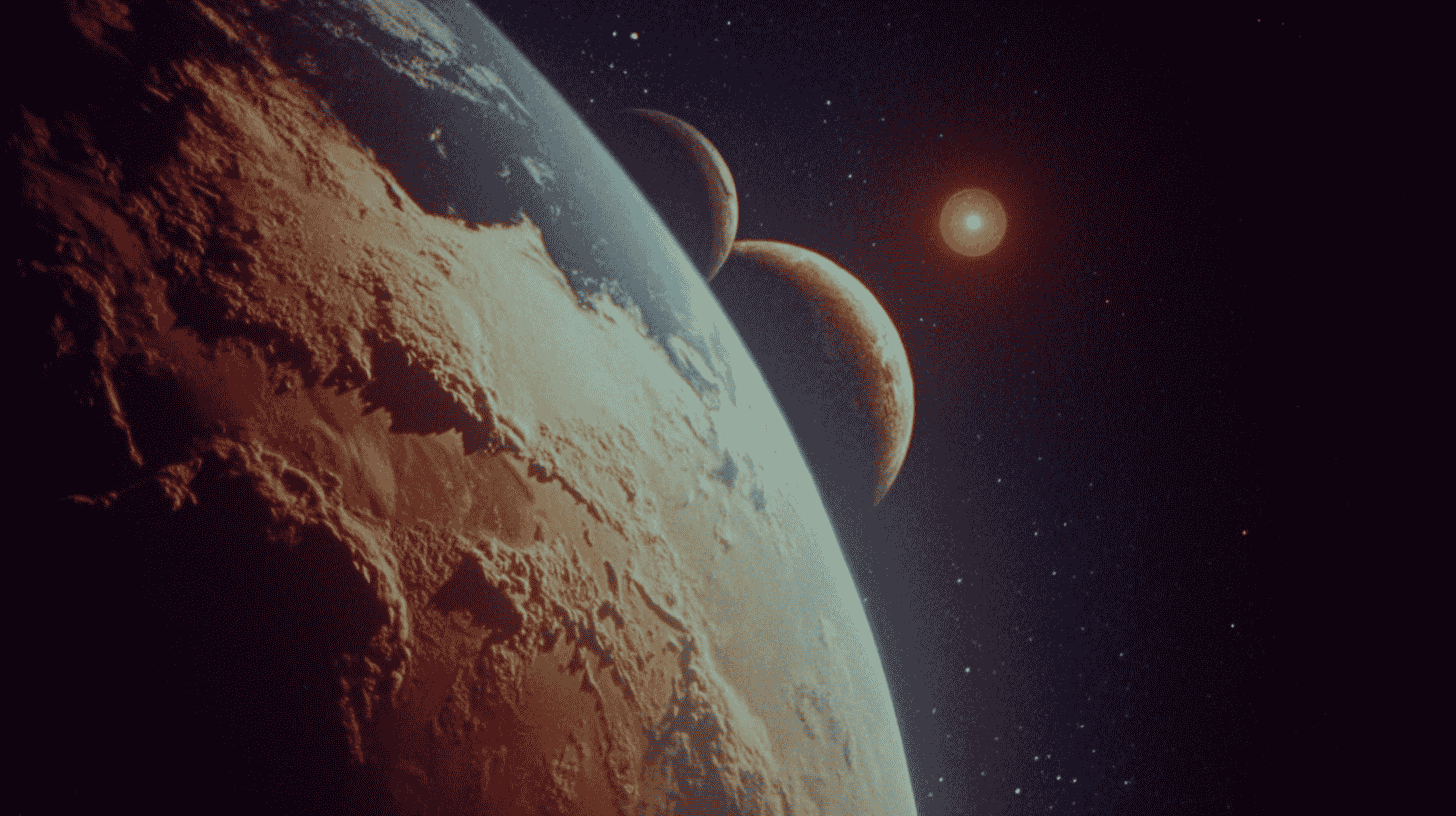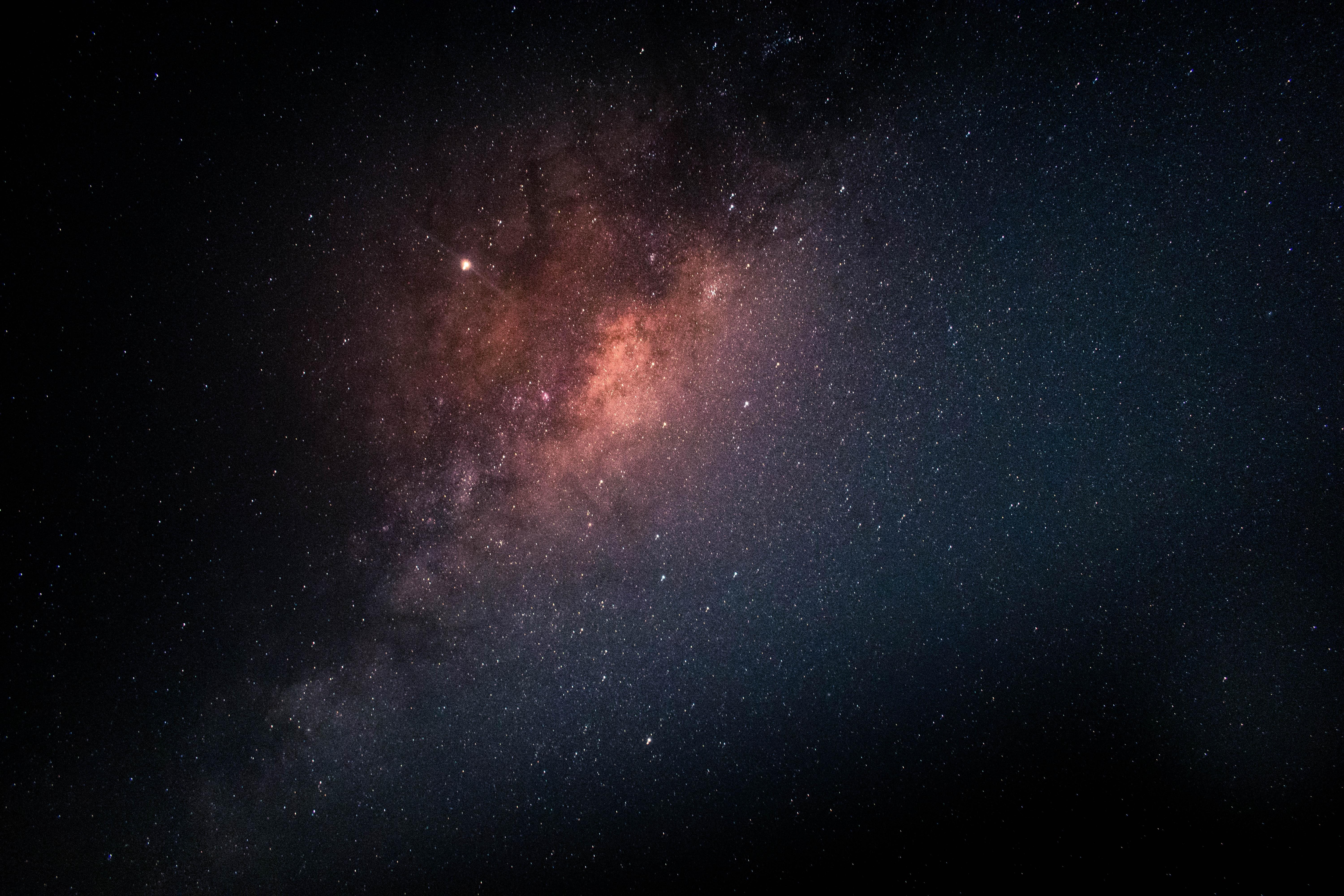

Journey to the Cosmic Frontier: Unveiling the Universe's Deepest Secrets.
Unveiling the Secrets of Space with Globalnetworkspace
Dive into the universe's mysteries with us. We offer surprising facts and simple explanations, making the cosmos accessible to everyone. Prepare for a journey beyond your wildest imaginations.
Stellar Nurseries: Cosmic Birthplaces
Discover how stars are born in vast clouds of gas and dust, creating breathtaking nebulae like the Orion Nebula. These stellar nurseries are where the universe's future suns ignite.
Black Holes: Gravity's Ultimate Trap
Learn about the mind-bending physics of black holes, regions of spacetime with gravity so intense that nothing, not even light, can escape their grasp. Explore their role in galaxy evolution.
Exoplanets: Worlds Beyond Our Solar System
Journey to distant exoplanets, worlds orbiting stars far beyond our sun. Some may harbor conditions suitable for life, offering tantalizing clues in the search for extraterrestrial life.
Galaxies: Island Universes
Explore the vast structures of galaxies, colossal collections of stars, gas, and dust bound together by gravity. From spiral galaxies like our Milky Way to elliptical giants, each has a unique story.
Asteroids: Remnants of the Early Solar System
Uncover the secrets hidden within asteroids, rocky remnants from the solar system's formation. Some may hold valuable resources, while others pose a potential threat to Earth.
Cosmic Microwave Background: Echoes of the Big Bang
Delve into the cosmic microwave background, faint radiation leftover from the Big Bang. It provides a snapshot of the early universe and crucial evidence supporting the Big Bang theory.
Expert Navigators of the Night Sky
Our team at Globalnetworkspace is passionately dedicated to unveiling the cosmos. We explore everything from distant galaxies to nearby asteroids.
Unlocking Cosmic Secrets
Discover the methods we use to understand complex space phenomena, like gravitational lensing and dark matter. Prepare to be amazed by the invisible universe.
Charting Your Course Through the Stars
Globalnetworkspace offers expert guidance in navigating the wonders of space, including planetary alignments and upcoming meteor showers. Don't miss the next celestial event.
Stories Written in Starlight
Join us in celebrating the incredible milestones in space exploration. From the first moon landing to the latest Mars rover discoveries, be inspired by human ingenuity.
Test Your Cosmic Knowledge
Challenge yourself with quizzes that cover a wide range of space topics, from the life cycle of stars to the formation of galaxies. See how much you know about the universe.
Reliable Galactic Positioning
We help you accurately understand your place in the universe, providing a cosmic perspective on our existence. Explore the awe-inspiring scale of the cosmos with Globalnetworkspace.
Still Exploring?
Sign up for a free cosmic consultation today.
EXPLORE THE UNIVERSE AT A GLANCE:
DISCOVER ASTOUNDING SPACE FACTS

Galaxies
Galaxies come in diverse shapes and sizes. Spiral galaxies, like our Milky Way, have swirling arms, while elliptical galaxies appear as vast, smooth blobs of stars. Some galaxies even collide and merge, creating stunning cosmic spectacles.

Stars
Stars aren't just twinkling lights; they're giant balls of plasma undergoing nuclear fusion. Our sun, a medium-sized star, converts 600 million tons of hydrogen into helium every second. Some stars explode as supernovae, leaving behind neutron stars or black holes.

Planets
Planets are incredibly diverse, from scorching gas giants to icy worlds. Some exoplanets, located light-years away, may have conditions suitable for liquid water, raising the tantalizing possibility of life beyond Earth.

Black Holes
Black holes are regions of spacetime with gravity so intense that nothing, not even light, can escape. They form from the collapse of massive stars and play a crucial role in shaping galaxies. Some supermassive black holes contain billions of times the mass of our sun.
COSMIC EXPLORATION: A JOURNEY THROUGH SPACE
PLANETARY SCIENCE: WORLDS NEAR AND FAR
EXPLORING OUR CELESTIAL NEIGHBORS
Delve into the fascinating realm of planets within and beyond our solar system. Uncover the geological wonders of Mars, the icy moons of Jupiter, and the alien landscapes of exoplanets light-years away. Discover what makes each world unique and potentially habitable.
STAR FORMATION AND EVOLUTION
FROM NEBULAE TO SUPERNOVAE
Journey through the life cycle of stars, from their birth in swirling nebulae to their eventual demise as white dwarfs, neutron stars, or black holes. Learn about the nuclear fusion processes that power these celestial furnaces and the dramatic events that shape their destinies.
GALACTIC DYNAMICS AND COSMOLOGY
UNRAVELING THE MYSTERIES OF THE UNIVERSE
Explore the large-scale structure of the cosmos, from the formation of galaxies to the expansion of the universe. Investigate the nature of dark matter and dark energy, the mysterious forces that govern the fate of the cosmos. Uncover the secrets of the Big Bang and the origins of everything.
ASTROBIOLOGY: THE SEARCH FOR LIFE BEYOND EARTH
ARE WE ALONE IN THE UNIVERSE?
Embark on the quest to find life beyond Earth, exploring the conditions necessary for life to arise and the potential habitats that may exist throughout the universe. Learn about the latest discoveries in exoplanet research and the ongoing search for biosignatures, hints of life on other worlds.
Cosmic Wonders: By the Numbers
Explore the awe-inspiring scale of the universe and the mind-blowing facts that define its vastness. Discover surprising statistics about planets, stars, and galaxies.
100 Billion+
galaxies in the observable universe93 Billion
light-years, approximate diameter of the observable universe2 Trillion+
estimated number of stars in the Milky Way galaxyEmbark on Your Cosmic Adventure!
Join Globalnetworkspace and explore the wonders of the universe. Discover astonishing facts, stunning images, and mind-bending theories about space.
ExploreFrequently Asked Questions About Space
How far away is the nearest star?
Proxima Centauri, the closest star to our sun, is approximately 4.2465 light-years away. That's about 25 trillion miles.
What is a light-year?
A light-year is the distance light travels in one year, about 5.88 trillion miles. It's used to measure vast distances in the universe.
Are there other galaxies besides the Milky Way?
Yes, the universe contains billions of galaxies, each with billions of stars. The Andromeda Galaxy is our closest galactic neighbor.
What is a black hole?
A black hole is a region of spacetime with gravity so strong that nothing, not even light, can escape its pull. They form from the collapse of massive stars.
How old is the universe?
Scientists estimate the universe to be approximately 13.8 billion years old, based on observations of the cosmic microwave background radiation.
CONTACT US FOR COSMIC INSIGHTS
- Explore the universe with us.
- Discover amazing space facts.
- Get expert insights.
- Join our community.
- Start your space journey now.
